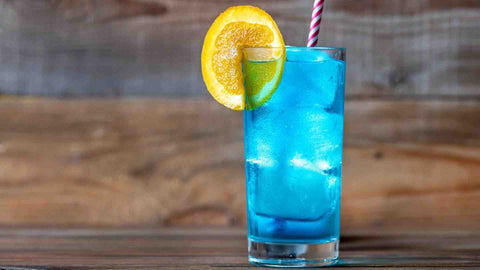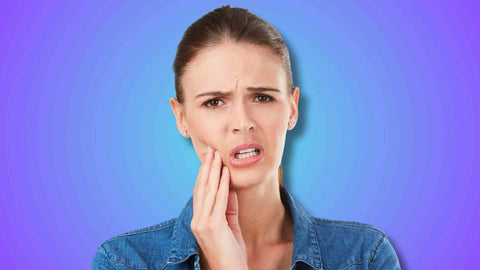Is Alcohol Bad for Your Teeth?
Yes, alcohol can have negative effects on your teeth and overall oral health. The primary concerns with consuming alcoholic beverages include their potential to contribute to tooth decay, enamel erosion, and gum disease.
Alcoholic drinks, including vodka, wine, and beer, often contain high levels of sugar which feeds the harmful bacteria in your mouth. These bacteria produce acids that attack the enamel on your teeth, leading to cavities.
Also, alcohol itself is acidic. Therefore, frequent exposure to it can weaken and wear away the enamel over time, making your teeth more susceptible to decay and sensitivity.
Additionally, alcohol consumption can lead to dry mouth by reducing saliva production. Saliva is crucial for oral health because it helps to neutralize acids, wash away food particles, and remineralize tooth enamel.
A reduction in saliva not only increases the risk of tooth decay but also can contribute to other oral health issues, such as gum disease and bad breath.
To mitigate the effects of alcohol on your oral health, it's important to drink in moderation, stay hydrated by drinking water alongside alcoholic beverages, maintain good oral hygiene practices like regularly brushing and flossing.
How does alcohol affect our oral health?

Alcohol consumption can have several negative effects on oral health, impacting everything from your teeth to your gums and the overall balance of your mouth's ecosystem. Let's walk through some of the key effects of alcohol.
Dry Mouth
Alcohol has a diuretic effect, which can lead to dehydration and a reduction in saliva production. Saliva is crucial for neutralizing acids in the mouth, washing away food particles, and preventing decay.
Therefore, a dry mouth environment is more conducive to bacterial growth, increasing your risk of tooth decay and gum disease.
Tooth Decay and Gum Disease
Many alcoholic beverages contain high levels of sugar which contributes to tooth decay by feeding the harmful bacteria in your mouth.
Further, the acidic nature of some drinks can also erode tooth enamel, making teeth more susceptible to decay.
Additionally, alcohol's impact on saliva production can affect the health of your gums, potentially leading to gum disease, as a dry mouth supports the conditions in which harmful bacteria thrive.
Oral Cancer Risk
Regular and excessive alcohol consumption is a known risk factor for oral cancer.
The risk increases significantly for those who both smoke and drink, as alcohol can make the oral tissues more susceptible to the harmful effects of tobacco.
Staining
Certain alcoholic drinks, like red wine, can stain teeth due to their color pigments (chromogens) and acidity, which etches the teeth and makes them more prone to staining.
Can alcohol cause tooth decay?

Yes, alcohol can contribute to tooth decay. This happens for several reasons.
First, many alcoholic beverages contain high levels of sugar, which feeds the harmful bacteria in your mouth. These bacteria produce acids as they digest the sugar, attacking your tooth enamel and leading to cavities.
Second, alcohol is inherently acidic, and frequent exposure to acidic drinks can weaken and erode your enamel over time, making your teeth more susceptible to decay.
This acidic erosion isn't specific to alcoholic beverages either; you may also experience a similar side effect from frequent coffee or tea consumption.
Finally, alcohol consumption often leads to a reduction in saliva production. Our bodies use saliva to maintain a balanced oral pH and remineralize enamel.
A dry mouth, therefore, increases your risk of tooth decay and other oral health issues.
While moderate drinking coupled with a thorough oral hygiene routine is not as likely to affect your teeth as frequent alcohol consumption, it's still important to be aware of the oral health risks.
Can alcohol cause gum disease?

Yes, alcohol consumption can indeed put you at a higher risk for gum disease, a condition that affects the health of your gums and, if untreated, can lead to tooth loss and other serious health issues.
This risk arises because alcohol tends to dry out your mouth, significantly reducing saliva production. Saliva is crucial for maintaining oral health; it helps to wash away food particles and neutralize harmful acids produced by bacteria in your mouth.
Without enough saliva, plaque builds up more easily along and under your gum line, leading to inflammation known as gingivitis, the first stage of gum disease.
Can alcohol cause cavities?

Yes, alcohol can contribute to the development of cavities. This happens for a couple of key reasons.
First, many alcoholic beverages contain significant amounts of sugar. When you drink these sugary drinks, the bacteria in your mouth feast on the sugar, producing acids as a byproduct.
These acids attack the enamel on your teeth, the hard, protective outer layer, leading to the demineralization and eventual decay of the tooth, which we recognize as cavities.
Additionally, alcohol consumption often leads to decreased saliva production. Saliva is crucial for oral health because it helps to neutralize acids in the mouth, wash away food particles, and remineralize tooth enamel.
A reduction in saliva, therefore, increases your risk of cavities by allowing acids to linger on your teeth longer and making it easier for plaque to build up.
Is mouthwash with alcohol bad for you?
Mouthwash with alcohol is not always bad, but it can have some downsides depending on your needs. Research suggests that alcohol-based mouthwashes can dry out your mouth by reducing saliva, which may lead to bad breath and a higher risk of cavities. On the other hand, studies indicate that non-alcoholic or alkaline mouthwashes are gentler and help keep your mouth’s pH balanced, which protects your enamel and reduces bacteria.
In fact, non-alcoholic mouthwashes are less likely to irritate your gums or worsen dry mouth, making them a better choice for many people. Alkaline mouthwashes are especially helpful because they neutralize acids, supporting enamel repair and cavity prevention. Some research also questions if alcohol-based mouthwashes are safe for people with a history of oral cancer, though the evidence isn’t clear. Overall, choosing a non-alcoholic or alkaline mouthwash is often a safer and healthier option for your daily oral care.
Why should you not use mouthwash everyday?
You should not use mouthwash everyday if it is an alcohol based mouthwash as it may not be the best for your oral health.
Studies suggest that alcohol-based mouthwashes can disrupt the natural balance of bacteria in your mouth, leading to dry mouth and irritation of the gums. This can reduce saliva production, which is essential for maintaining a healthy mouth and protecting your teeth from cavities.
Research also indicates that overuse of mouthwash may mask underlying issues, such as gum disease or cavities, without addressing the root cause.
That’s why it’s generally better to use alcohol free mouthwash which may be based on alkaline as it may help maintain a healthy pH balance in your mouth and support enamel remineralization. Alkaline mouthwashes, in particular, can neutralize acids in the mouth, helping to prevent tooth decay and freshen breath without drying out the mouth.
Overall, using non-alcoholic or alkaline mouthwash as part of a balanced oral care routine is a safer option for long-term oral health.
How to Maintain Oral Health While Drinking Alcohol
Enjoying alcohol doesn't have to come at the expense of your oral health if you follow a few smart practices.
First and foremost, keep yourself hydrated by drinking plenty of water alongside your alcoholic beverages. Alcohol has a drying effect on your mouth, reducing saliva flow, which is essential for neutralizing harmful acids and washing away food particles.
By staying hydrated, you help maintain saliva production, protecting your teeth from decay and your mouth from drying out.
Additionally, be selective with your drinks. Opt for those lower in sugar and acidity to minimize the risk of tooth decay and enamel erosion. Sugary and acidic drinks are the worst parts of alcohol since they promote bacterial growth and acid attack on your enamel.
After enjoying a drink, make it a habit to rinse your mouth with water. This simple step can significantly reduce the impact of alcohol on your teeth by neutralizing acids and flushing away sugars and potential stains.
However, resist the urge to brush your teeth immediately after drinking, especially if you've consumed something acidic. Wait at least 30 minutes before brushing to avoid damaging softened enamel.
Instead, maintain a consistent oral hygiene routine, brushing twice daily with remineralizing toothpaste and flossing once a day. Also, you can consider chewing sugar free gum with xylitol to support remineralization.
By taking these steps, you can enjoy your favorite beverages without sacrificing your oral health.
Is mouthwash with alcohol bad for you?
Mouthwash with alcohol is not always bad, but it can have some downsides depending on your needs.
Research suggests that alcohol-based mouthwashes can dry out your mouth by reducing saliva, which may lead to bad breath and a higher risk of cavities. On the other hand, non-alcoholic mouthwashes, especially alkaline-based ones, are gentler and help maintain your mouth’s pH balance, which protects your enamel and reduces bacteria.
In fact, non-alcoholic mouthwashes are less likely to irritate your gums or worsen dry mouth, making them a better choice for many people. Alkaline mouthwashes are especially helpful because they neutralize acids, supporting enamel repair and cavity prevention.
Overall, choosing a non-alcoholic is often a safer and healthier option for your daily oral care.
Why should you not use mouthwash every day?
You should not use mouthwash every day if it is an alcohol based mouthwash as it may not be the best for your oral health.
Studies suggest that alcohol-based mouthwashes can disrupt the natural balance of bacteria in your mouth, leading to dry mouth and irritation of the gums. This can reduce saliva production, which is essential for maintaining a healthy mouth and protecting your teeth from cavities.
Research also indicates that overuse of mouthwash may mask underlying issues, such as gum disease or cavities, without addressing the root cause.
That’s why it’s generally better to use alcohol free mouthwash which may be based on alkaline as it may help maintain a healthy pH balance in your mouth and support enamel remineralization. Alkaline mouthwashes, in particular, can neutralize acids in the mouth, helping to prevent tooth decay and freshen breath without drying out the mouth.
Frequently Asked Questions
What alcohol is safest for teeth?
When it comes to choosing alcoholic beverages that are safe for teeth, opt for those with lower acidity and sugar content. Lighter-colored drinks like vodka or gin mixed with water or soda are generally better choices as they are less likely to erode tooth enamel compared to darker spirits or sugary cocktails. However, it's essential to consume alcohol in moderation and maintain good oral hygiene practices to minimize any potential negative effects on dental health.
Can dentists tell if you drink alcohol?
Dentists may not directly detect alcohol consumption, but certain oral health indicators can suggest frequent or heavy drinking. Alcohol, especially when consumed excessively, can lead to dehydration and reduced saliva flow, increasing the risk of tooth decay and gum disease. Signs such as dry mouth, a higher incidence of cavities, or gum disease might alert your dentist to potential alcohol-related effects on your oral health. Additionally, frequent consumption of acidic or sugary alcoholic beverages can lead to enamel erosion, another clue for dentists.
Should you brush your teeth after drinking alcohol?
It's generally a good idea to clean your mouth after drinking alcohol, but immediate brushing isn't always advised, especially if you've consumed acidic beverages. Alcohol can dry out your mouth, reducing saliva which protects against tooth decay, and acidic drinks can soften tooth enamel. To avoid potential harm, rinse your mouth with water or chew sugar-free gum to stimulate saliva production and neutralize acids. If you decide to brush, wait at least 30 minutes after drinking to allow your enamel to reharden and to ensure you're not brushing the acids deeper into your teeth.
How can I protect my teeth while drinking?
To safeguard your teeth while consuming alcohol, opt for drinks lower in sugar and acidity. Hydrate with water alongside alcoholic beverages to rinse away sugars and acids and counteract dry mouth. Consider using a straw to minimize contact with teeth when drinking acidic or sugary cocktails. Wait at least 30 minutes after consuming acidic drinks before brushing your teeth to prevent enamel erosion, and maintain regular oral hygiene practices like brushing and flossing.
Is drinking with a straw better for teeth?
Drinking with a straw can be better for teeth, especially when consuming acidic or sugary beverages. Using a straw helps minimize direct contact between the drink and your teeth, reducing the risk of enamel erosion and cavities. However, it's important to note that this method is not foolproof and should be combined with other oral hygiene practices for optimal dental health.
Does drinking alcohol through a straw protect your teeth?
Drinking alcohol through a straw can offer some protection for your teeth, particularly when consuming acidic or sugary beverages. Using a straw helps minimize direct contact between the drink and your teeth, reducing the risk of enamel erosion and cavities. However, while it can be a helpful strategy, it's not a complete safeguard, and maintaining good oral hygiene practices is still essential for overall dental health.
What should you avoid in mouthwash?
Avoid mouthwash with alcohol, as it can dry out your mouth. Stay away from harsh chemicals like chlorhexidine for daily use since they can stain teeth. Also, avoid mouthwashes with too much fluoride as it may cause white spots on teeth, known as fluorosis. Using too much fluoride over time can weaken enamel instead of strengthening it. It’s best to choose a gentle, alcohol-free mouthwash with natural ingredients for daily use.
Is mouthwash before or after brushing?
It’s best to use mouthwash after brushing to help wash away leftover bacteria. If your mouthwash has fluoride, wait at least 30 minutes before eating or drinking. Using mouthwash before brushing can loosen plaque, but it’s not as effective as using it after.
Is mouthwash better with or without alcohol?
Alcohol-based mouthwash is effective at killing bacteria and can help freshen breath, but it may cause a burning sensation and lead to dry mouth over time. Non-alcohol mouthwash, on the other hand, is gentler and just as effective for maintaining oral hygiene without the risk of irritation or dryness. Studies suggest that non-alcohol mouthwashes are especially beneficial for those with sensitive gums or dry mouth issues. For a safer, side-effect-free option, non-alcohol mouthwash is often the better choice.






















